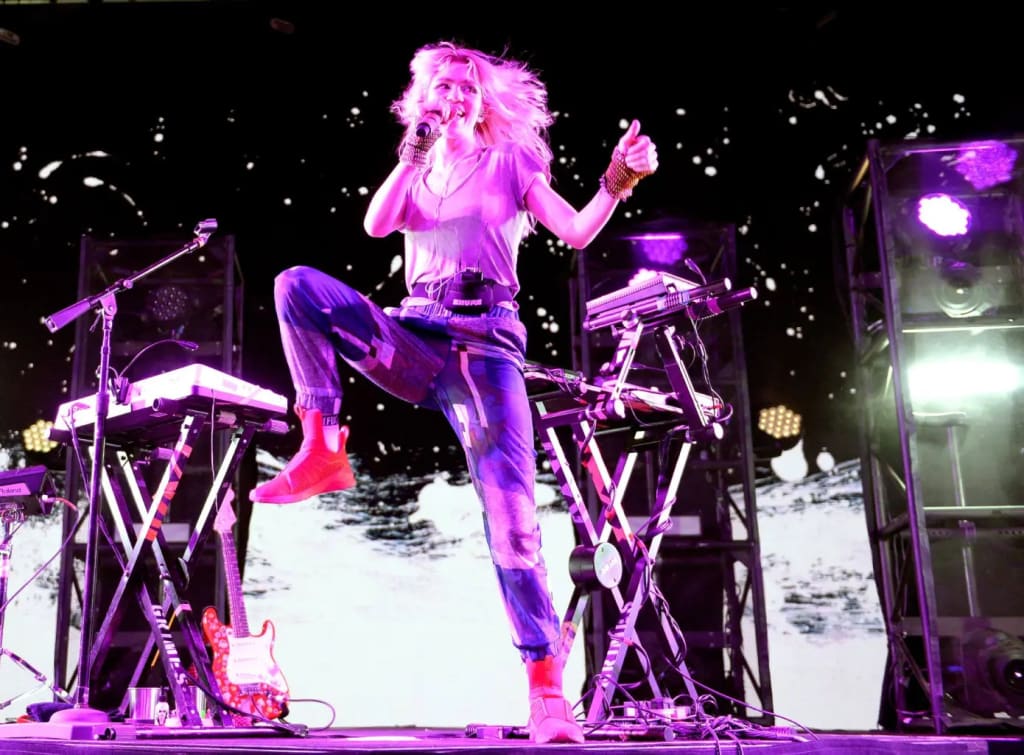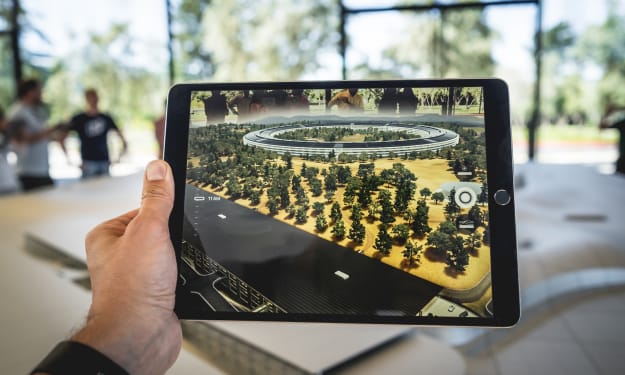From Drake to Grimes: The AI Revolution in Music Creation
"Unleashing Creativity: Exploring the AI Revolution in Music Creation, From Drake to Grimes"

The times we live in have always been reflected in music. Technology improvements have had a significant impact on how we produce and consume music throughout history. The music industry has changed as a result of technology, from the phonograph's development to the emergence of streaming services.
The music industry is undergoing yet another huge change right now, one that is being fueled by the quick development of artificial intelligence (AI). AI is transforming how humans compose and produce music, and the industry is already noticing the effects.
AI is becoming a more vital tool in the music-making process, from Grammy-winning artists like Drake to genre-defying performers like Grimes. Let's examine how AI is changing the music business and what it means for music's future.
The Rise of AI in Music Creation
The idea of AI is not new to the music business. Music producers and performers have long used software and algorithms to help in songwriting and music creation. However, new developments in AI have advanced the situation.
The application of machine learning algorithms to music production is one of the most significant ways AI is changing the field. These algorithms can examine enormous volumes of data, including chord progressions and musical notes, to find trends and produce fresh musical ideas.
For instance, OpenAI's MuseNet is an AI-driven system for composing music that can produce creative music in a variety of genres and styles. MuseNet taught the fundamental concepts of music theory and composition using a large dataset of classical, jazz, and popular music.
Amper Music, a platform for AI-powered music composition that enables users to create original, royalty-free music in minutes, is another example of AI in music creation. Based on a user's input and preferences, Amper's AI engine can create a piece of completely original music.
The creation and blending of music also employ AI. AI algorithms are used by programs like LANDR and iZotope's Ozone to analyze and improve audio files, giving them a more polished and expert sound.
The Impact of AI on the Music Industry
The effects of AI on the music business are extensive. One benefit of AI is that a larger range of people can now create music. Without academic experience in music theory or composition, anyone can make original music using programs like MuseNet and Amper.
Additionally, AI is altering how we listen to music. AI algorithms are used by streaming services like Apple Music and Spotify to make customized playlists for users. These algorithms examine a user's listening patterns to determine their listening preferences and provide playlists that are suitable for them.
AI is also assisting producers and musicians with streamlining the recording process. By analyzing and enhancing audio tracks, software like LANDR and iZotope's Ozone can eliminate the need for manual processing and save time and money during production.
AI's potential to dissolve creative barriers may have the biggest effect on the music business. AI is capable of creating brand-new musical genres and ideas that weren't previously possible. This could result in the development of brand-new musical genres or the innovative blending of already-existing genres.
The Role of AI in the Creative Process
Although AI is undoubtedly altering how we compose and make music, it's crucial to keep in mind that it is still only a tool. AI is capable of coming up with fresh musical concepts and streamlining the production process, but it cannot take the place of human creativity.
In reality, a lot of producers and musicians are using AI to boost their own creativity. They are able to overcome creative limitations and venture into new musical realms by employing AI to develop fresh musical ideas or as the basis for a new tune.
To sum up, the AI revolution in music production is changing the music business in ways we never imagined. AI is advancing the accessibility and effectiveness of music production in a number of ways, including the capacity to develop fresh musical concepts and the simplification of the production process.
But while AI is undoubtedly altering how we produce and consume music, it is vital to keep in mind that it is still only a tool. The process of making music will always rely heavily on human creativity and intuition; artificial intelligence should be viewed as a tool to support rather than replace that creativity.
It seems certain that AI will continue to play a vital part in the music industry as we look to the future of music. It's possible that brand-new musical subgenres could develop or that already-existing genres may be combined in intriguing new ways.
But one thing is certain: music will always be a reflection of the times in which we live, and as we push the limits of technology, it will advance and develop with us. The AI revolution in music creation, which already includes Drake, Grimes, and others, is only getting started, and we're excited to see where it goes.
About the Creator
Ahamed Thousif
🌟 Welcome to the realm of exploration, where communities come alive through the power of words! 📚✨ Join me as we embark on a journey to discover the vibrant tapestry of stories and Poems.
VISIT - "MY FOOD BLOG"






Comments
There are no comments for this story
Be the first to respond and start the conversation.